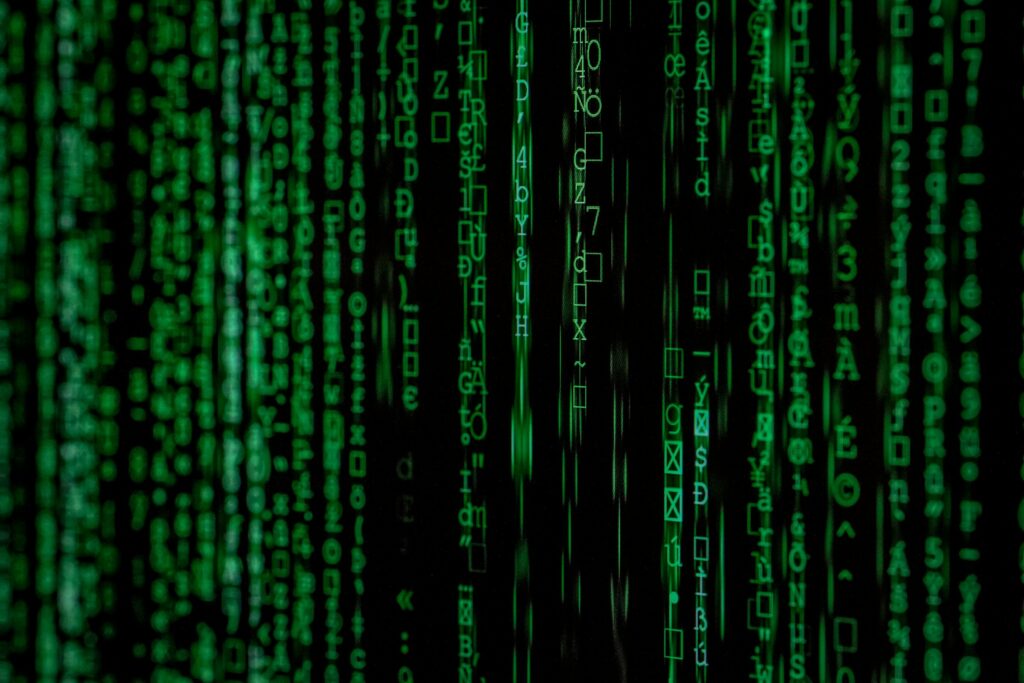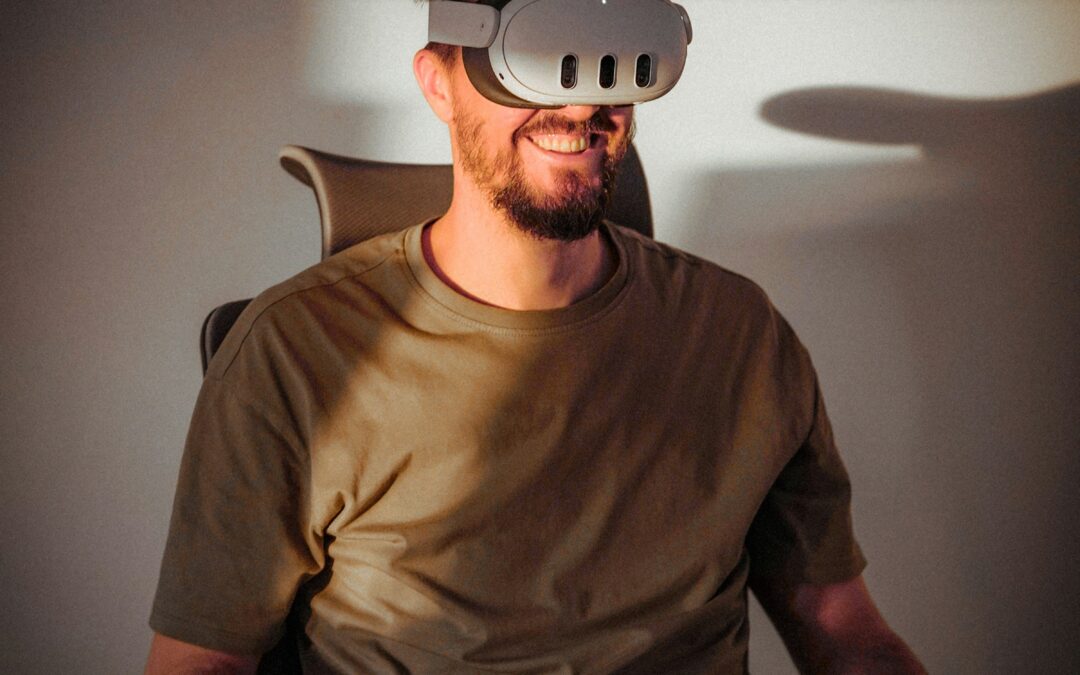The metaverse is evolving rapidly and raising new questions about data protection. This virtual world interweaves physical and digital reality, which poses unique challenges for data security. The Data protection in the Metaverse faces complex tasks as the boundaries between real and virtual identity become blurred.
The Metaverse data protection regulation must keep pace with this rapid development. There are currently no specific laws for data protection in this new dimension. Nevertheless, companies that are active in the metaverse must comply with existing data protection laws such as the GDPR.
The Metaverse data security is becoming increasingly important. According to an IBM study, the average data breach in the corporate metaverse in 2021 cost around 4.24 million US dollars. This figure underlines the need for robust security measures in the virtual world.
Key findings
- The metaverse creates new challenges for data protection
- The GDPR also applies to the Data processing in the metaverse
- Specific laws for the Data protection in the Metaverse still missing
- Data breaches in the Metaverse can cost millions
- Companies must implement strict data protection guidelines in the Metaverse
What is the metaverse?
The Metaverse is a fascinating digital world that complements our reality. This virtual environment offers new opportunities for interaction, entertainment and business. The Metaverse definition comprises a three-dimensional, immersive experience that users experience with avatars.
Definition and concept
The Metaverse is a fully digitized 3D world that exists parallel to our physical reality. It combines virtual and augmented reality to create a seamless digital experience. The Metaverse development aims to create a comprehensive virtual environment in which people can work, play and interact socially.
Technological basics
The Metaverse technology is based on advanced systems such as virtual reality (VR) and augmented reality (AR). VR headsets and AR glasses provide access to this digital world. Blockchain technology and Web 3.0 support the creation of digital property and secure transactions in the metaverse.
Current developments in the metaverse
The Metaverse development is progressing rapidly. Major technology companies such as Meta (formerly Facebook), Microsoft and Apple are investing heavily in this area. Experts predict that the metaverse will grow into an 800 billion dollar market by 2024. However, this development also brings challenges, particularly in the area of data protection.
| Aspect | Data |
|---|---|
| Market forecast 2024 | 800 billion dollars |
| Data protection concerns (USA) | 87% the American |
| Facebook fine for data protection breach | 5 billion dollars |
The rapid development of the metaverse harbors great opportunities as well as considerable risks. The protection of personal data is becoming a key challenge that needs to be overcome.
Data protection in the metaverse: Challenges and risks
The metaverse opens up new possibilities, but also entails considerable data protection risks. The Privacy in the Metaverse is facing unprecedented challenges as more personal data is being collected and processed than ever before.
- Capture biometric data such as eye movements and posture
- Access to location and financial data
- Increased attack surface due to networked devices
- Risk of identity theft and cybercrime
Studies show that movement patterns in the metaverse can even reveal unknown health conditions. This highlights the sensitivity of the data collected and the need for strict protective measures.
Safeguarding the Privacy in the Metaverse is crucial for the acceptance and long-term success of this technology.
Experts warn of new forms of abuse such as deep fakes and increased stalking due to anonymity in virtual space. To prevent this Data protection risks in the metaverse innovative solutions are required.
| The challenge | Potential solution |
|---|---|
| Data collection | Data economy and encryption |
| Identity protection | Blockchain-based authentication |
| Cybercrime | AI-supported security systems |
The development of the Metaverse requires a proactive approach to data protection. This is the only way to gain the trust of users and exploit the full potential of this revolutionary technology.
Applicability of the GDPR in the Metaverse
The GDPR in the Metaverse plays a crucial role in data protection in this new digital world. The Metaverse data protection regulation is based on the proven principles of the GDPR, but needs to be adapted to the unique challenges of this virtual environment.
Spatial scope of application
The territorial scope of the GDPR extends to the metaverse if the operator is based in the EU or specifically targets its services at EU citizens. This also applies to platforms such as Decentraland, which analyze user interactions from the EU.
Material scope of application
In terms of the material scope of application, the GDPR in the Metaverse the processing of personal data. This includes not only registration data, but also biometric information such as body movements, facial expressions and eye tracking. A study by Nature Magazine (2020) shows that 95% of test subjects could be identified based on a 5-minute recording of their body movements.
| Data type | Example | GDPR relevance |
|---|---|---|
| Registration data | Name, e-mail | Protected by default |
| Biometric data | Body movements, facial expressions | Particularly in need of protection (Art. 9 GDPR) |
| Interaction data | Usage behavior | Data minimization required |
The technology-neutral design of the GDPR enables its application in the metaverse without restrictions. However, the increased amount of data in the metaverse requires special attention to the principle of data minimization. The Metaverse data protection regulation must take these aspects into account in order to ensure effective protection of user rights.
The applicability of the GDPR in the Metaverse also raises questions about legal responsibility. In the case of joint responsibility, all parties involved are liable for data protection violations. This underlines the need for a clear legal framework for metaverse data protection regulation.
Data protection responsibility of the actors
The Data protection responsibility in the Metaverse is complex and is spread over various Metaverse actors. The operator of the virtual world bears the main responsibility for the protection of personal data.
Companies that are active in the metaverse can also be considered controllers if they collect and process user data themselves. In many cases, there is joint responsibility between the platform operator and the company.

Other actors such as agencies and hardware providers can also be held responsible for the processing of personal data. The following table provides an overview of the most important controllers:
| Actor | Responsibility |
|---|---|
| Metaverse operator | Main person responsible for the platform |
| The company | Responsible for own data collection |
| Room operator | Responsible for data in virtual spaces |
| Payment service provider | Responsible for transaction data |
| Hardware provider | Responsible for device data |
The diversity of Metaverse actors and their different roles make the implementation of data protection a challenge. A clear delineation of responsibilities is crucial in order to protect users' rights and ensure compliance with the GDPR.
Justification of data processing in the metaverse
The Data processing in the metaverse requires a careful legal basis. Virtual worlds generate a large amount of personal data that falls under the protection of the GDPR. Platform operators must therefore ensure the lawfulness of all data processing.
Consent of the users
The Metaverse consent plays a central role. In the case of free offers, it is often the basis for data processing. Users must be informed clearly and comprehensibly about the use of their data. Explicit consent is particularly necessary when linking different data sets.
Legitimate interests of the companies
In some cases, companies can invoke legitimate interests. This applies, for example, to advertising purposes or the improvement of services. Careful consideration of the company's interests and the rights of users is essential.
The justification of the Data processing in the metaverse remains complex. According to a study by McKinsey, over USD 120 billion has already been invested in the metaverse. This underlines the need for clear rules for data protection in virtual worlds.
"The EU Commission will not deal with the metaverse in depth until 2023" - Bavarian IT Law Day 2022
Companies should proactively develop data protection concepts in order to protect the rights of users and offer innovative services at the same time.
Contractual agreements on data protection
Playing in the metaverse Metaverse data protection agreements a central role. Platform operators and users agree on Metaverse Terms of Usethat regulate the handling of personal data. These agreements are complex and vary depending on the platform.
Large providers such as Meta have their own set of rules. The Meta Platform Terms of Use apply to developers, companies and partners. They include EU standard contractual clauses for platform data and require compliance with all Facebook guidelines.

The legal landscape in the metaverse is diverse. Roblox uses Californian law, Horizon Worlds uses Irish law. Decentraland applies Panamanian law, while Sandbox opts for Hong Kong. This diversity makes it difficult to protect user rights.
| Platform | Applicable law | Special features |
|---|---|---|
| Roblox | California, USA | – |
| Horizon Worlds | Ireland | EU consumer regulations |
| Decentraland | Panama | Use from the age of 13 |
| Sandbox | Hong Kong | Ban on pornography |
German law is rarely applied, as it has strict rules for unilateral contractual conditions. This leads to uncertainties in the enforcement of user rights in the metaverse. The development of specific metaverse laws remains to be seen.
Data protection information and data subject rights
Data protection information and data subject rights are becoming increasingly important in the metaverse. The processing of personal data in virtual worlds requires transparent communication and clear guidelines.
Metaverse data protection information cover various aspects. Platform operators and companies must inform users about the collection and processing of their data. This concerns inventory data, location information, contact and content data as well as usage and metadata.
For users are Metaverse data subject rights of great importance. You have the right to information about your stored data and can request its deletion. These requests must be processed within one month.
| Data type | Examples | Protective measures |
|---|---|---|
| Inventory data | Name, address | Encryption |
| Location data | GPS coordinates | Anonymization |
| Usage data | Activities, interactions | Access restrictions |
The storage period of data in the metaverse varies. Cookies, for example, can be stored for up to two years. Users have the right to withdraw their consent to data processing and to object to the use of cookies.
Transparency and control over personal data are cornerstones of data protection in the Metaverse.
New technologies such as LiDAR and eye tracking in VR/AR headsets raise additional data protection issues. The legal classification of these technologies has not yet been conclusively clarified.
Blockchain technology as a solution for data protection problems
The Blockchain in the metaverse offers innovative Metaverse data protection solutions. This technology enables secure and transparent transactions without centralized control. Users retain control over their data, which represents a paradigm shift in the handling of personal information.
Decentralized data storage
Blockchain uses decentralized storage to reduce data leaks. In contrast to Web2, where data is stored centrally, Web3 distributes the information. This significantly increases security and privacy protection.
Separation of transaction and personal data
An important aspect of the Blockchain in the metaverse is the separation of transaction and personal data. Users can use multiple hashes to increase their anonymity. This technology makes it possible to comply with data protection regulations and at the same time benefit from the advantages of the blockchain.
Authentication and identity protection
Decentralized identity solutions give users full control over their personal data. This improves data protection and security in the metaverse. Practical applications such as decentralized social networks and data marketplaces allow users to control and monetize their data under strict data protection conditions.
| Aspect | Web2 | Web3 (Blockchain) |
|---|---|---|
| Data storage | Central | Decentralized |
| Data control | Platforms | Users |
| Data protection risk | High | Reduced |
| Identity management | Centralized | Decentralized |
The development of Metaverse data protection solutions through blockchain technology requires the cooperation of legislators, developers and users. This is the only way to define appropriate data protection standards for the unique requirements of the web3.
Cryptocurrencies and NFTs in the context of data protection
Cryptocurrencies in the metaverse play a central role in data protection. They enable pseudonymous transactions with simultaneous transparency. This gives users more control over their financial data in the virtual world.
NFTs and data protection are closely linked. These digital proofs of ownership are becoming increasingly important for the purchase of virtual goods and services. They offer new possibilities for authenticating and protecting digital identities.
Blockchain technology, on which cryptocurrencies and NFTs are based, offers opportunities for data protection:
- Decentralized data storage increases security
- Users retain control over their personal information
- Transparent transactions while preserving privacy
Experts discuss the role of cryptocurrencies and NFTs for the Data protection in the Metaverse intensive. The Metaverse roundtable on 27.02.2024 focused on the protection of intellectual property. Representatives from technology, banking and start-ups discussed security aspects and ethical challenges.
| Aspect | Advantages for data protection |
|---|---|
| Cryptocurrencies | Pseudonymous transactions, increased user control |
| NFTs | Secure authentication, protection of digital identities |
| Blockchain | Decentralized data storage, transparency |
The integration of cryptocurrencies and NFTs in the metaverse holds great potential for improved data protection. At the same time, new challenges arise that require the continuous further development of technologies and regulations.
Future developments and challenges
The Metaverse future brings with it exciting opportunities and complex challenges. According to surveys, 45% of Germans have already heard of the metaverse and can categorize it. This shows the growing interest in this digital parallel world.
Regulatory adjustments
The legal landscape must adapt to the new reality In June 2023, a trilogue was held on the EU regulation on the regulation of artificial intelligence. This underlines the urgency of creating a reliable legal framework for the metaverse. Data protection innovations play a central role in this.
Technological innovations
Technical advances are driving the development of the metaverse. Improved VR devices and advanced encryption methods are crucial for the protection of personal data. Creating a smooth and reliable user experience remains a challenge.
Companies see the potential: 18% see the metaverse as an opportunity. At the same time, they recognize the risks, particularly in the area of data protection. The processing of inventory, payment and content data requires innovative solutions to protect user privacy.
The Metaverse has the potential to promote equality at various levels. 24% of Germans believe in it.
The future of the Metaverse depends on the balance between innovation and protection. Data protection innovations will be decisive in gaining the trust of users and increasing the Metaverse future design.
Conclusion
The Metaverse data protection summary shows that protecting personal data in this virtual world is an immense challenge. Studies show that 85% of companies in the metaverse process personal data and an average of 50 sensitive data points are generated per user. These figures highlight the urgency of robust data protection measures.
For the Data protection future In the metaverse, innovative solutions are essential. Experts recommend the use of trustworthy VPN connections and strong, unique passwords. Users should also carefully check the privacy policies of the platforms and only disclose personal information sparingly. These measures contribute to security, but are not enough on their own.
Blockchain technology could play a key role in the Data protection future play. It enables decentralized data storage and improved authentication methods. At the same time, around 20 pieces of EU legislation need to be revised to adequately regulate data protection in the metaverse. Only through the interplay of technology, legislation and user awareness can a secure metaverse environment be created.
